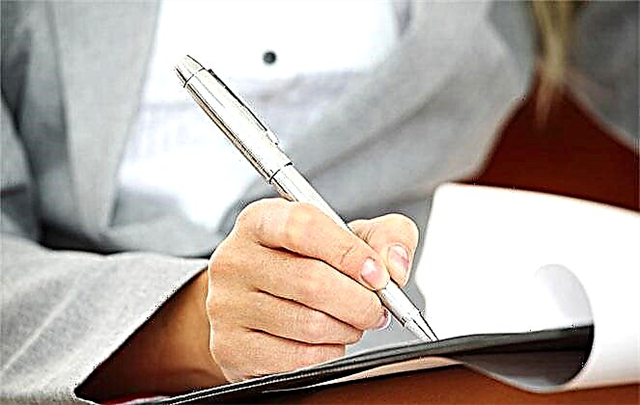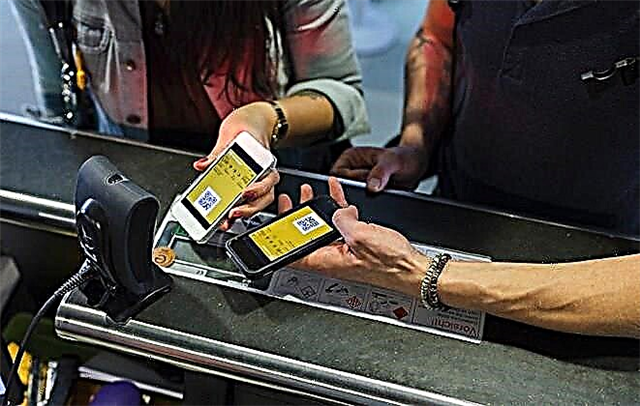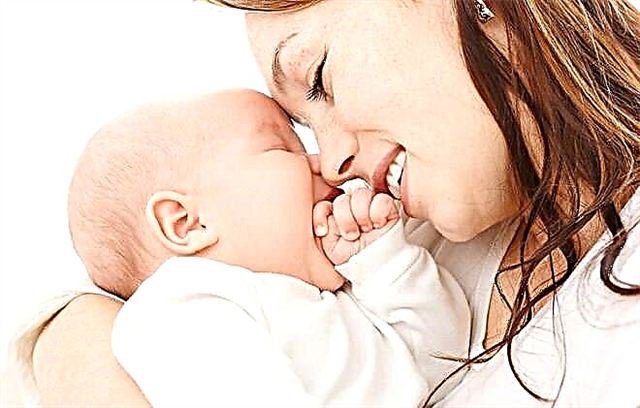Many mothers dream of having a child in another country. They are attracted by more developed medicine, technical equipment of clinics, and in some countries also citizenship, which the baby will receive by the “right of the soil”. Pregnancy and childbirth in Finland does not involve as many formalities as in Russia. If a woman is not worried about anything, no one will torture her with tests and all kinds of procedures.

Benefits of childbirth in Finnish clinics
The report of the international organization Save the Children says that Finland is one of the safest and safest countries to have children. The study was based on such indicators as the mortality of women in childbirth and pregnant women, as well as the mortality of children under 5 years of age.
The main advantages of childbirth in Suomi include:
- high professional training and friendliness of medical personnel;
- innovative technical equipment of maternity hospitals;
- taking care of the psychological state of the mother;
- the possibility of the child's father being present at childbirth;
- the mother's right to decide whether anesthesia will be used or not;
- full provision of mom and baby with everything necessary during their stay in the hospital;
- lack of "unnecessary vigilance" of doctors and unnecessary formalities with documents.
For an additional fee, the family can receive a separate ward, in which they will live in full force until the very discharge from the clinic.
Features of pregnancy management
In order for the birth in Finland to take place for Russians, it is necessary to choose a clinic in which this will happen, register in it between the 12th and 26th weeks and bring the following documents:
- The conclusion of the doctor, whose mother-to-be was observed at home.
- Results of analyzes done earlier.
- Conclusion of ultrasound, if ultrasound has already been performed.
You can make an appointment with a doctor by phone or by sending an email. By registering before the 16th week, a pregnant foreign woman living in Finland will be entitled to benefits (if there is some period of employment).
In Finland, pregnancy and childbirth are considered a natural physiological process. Local specialists try not to turn the mother's life upside down and allow her to enjoy this unique state of the body. There are health centers in each city, where you can enroll in courses on preparation for childbirth. If you have insurance, you can visit them free of charge.
Visits to the clinic during pregnancy are carried out once a month if the woman feels normal. The appointment is led by a nurse. The obstetrician examines the woman 3 times for the entire period.
In the last weeks, you need to appear for an appointment once every 2 weeks. If any pathologies are found during the current examinations, the expectant mother is sent to a specialized clinic.
Obligatory tests (blood and urine) are taken immediately after registration at the clinic. A pregnant woman will certainly be checked for the presence of sexually transmitted infections. But tests to identify various abnormalities, for example, Down's syndrome, are carried out only at the request of the parents. At a later stage, the fetal heart is listened to, the mother's blood and urine are checked, her belly and weight are measured.
Ultrasound is performed 2-3 times during the entire period of pregnancy. More often, a study is prescribed only if there is a medical indication.
The wards in Finnish hospitals are equipped with everything you need:
- postpartum linen;
- clothes for mom and baby;
- personal hygiene products;
- diapers;
- diapers.
After the fifth month of pregnancy, the family receives a box of gifts from the state. Those who wish can take money (140 euros), but very few people refuse the presentation, since it contains a lot of everything necessary.

You need to arrive in the country 2-5 weeks before delivery. But in the hospital itself - only on the day when the water leaves and the contractions begin. To control the frequency of contractions, the woman will be connected to special sensors.
The entire history of pregnancy and childbirth is kept in a computer that is installed in each ward. Even the smallest details are entered into the system, which can facilitate the work of the next shift of midwives.
The clinic provides food for the woman (3 times a day). In addition to the main dishes, the menu includes vegetables, fruits and yoghurts.
The delivery rooms have a jacuzzi, comfortable chairs, fitballs to help the mother in labor reduce pain during labor. Until the very birth of the baby, the mother can move around the ward and choose any position for herself in order to survive this state.
From the first second of birth, the child is always with his mother. The ward has a shower, a bed for mom and baby, a changing table.
How is childbirth and the period after it
It is not customary to stimulate childbirth in Finland. Everything should come naturally. Caesarean section is done here only in the most extreme cases.
The birth is carried out by a midwife. The doctor joins the process only if there is a need for it, for example, the wrong position of the fetus, prolonged labor. A pediatrician and an anesthesiologist are always on duty in the maternity ward.
During labor, constant monitoring of the baby's heartbeat and labor contractions is carried out. If a woman wants, she can ask for one of the possible types of anesthesia: laughing gas, topical injection, or epidural pain relief.
In Finland, it is customary for the child's father to be present at the birth. Very often he is even offered to cut the umbilical cord and wash the baby for the first time.
After giving birth, the family can move to a separate room. But most often women choose double, triple or quadruple rooms.
The kid is always with his mother. If the woman is tired or cannot handle the baby on her own, the nurse can pick it up.
Reception of visitors is allowed at any time. They do not require any change of clothing or shoes.
In the first hours after the baby is born, the nurse tells the mother how to breastfeed, how to care for the baby, how to express milk. There are no stereotypes about how long to breastfeed. But doctors recommend doing this for up to 1 year. Additional complementary foods are introduced from 4-6 months.
Discharge from the hospital is carried out on the 3-4th day, if the doctors have no complaints about the baby's condition. The next day the family is visited by a midwife at home, then a few days later by a local nurse. Next, mom needs to see a doctor once a month.
If nothing bothers the child, this is enough to monitor his condition. Home visits are not available in Finland. There is an ambulance, but they resort to its services only if there is a question of life and death.
Delivery cost
For citizens of the state and migrants legally working in Finland and deducting taxes, maternity hospital services are free, since all costs are covered by the state. You will have to pay only for a separate ward, which provides complete family privacy and 4 meals a day for the father. Typically, this service costs 35 euros per day per person.
For foreign citizens, the cost of childbirth in Finland will cost about 3-4 thousand euros. But the clinic may ask to put at least 8 thousand on the deposit. Upon discharge, the unspent difference is refunded.
The first visit to the clinic can cost about a thousand euros. The amount includes:
- consultation;
- a conversation with an obstetrician;
- Ultrasound;
- analyzes.
If a cesarean section is to be performed, the budget will increase to 9-10 thousand euros.
Discharge from the maternity hospital
Finnish citizenship is not granted to a child by birth right in the country. He will become a citizen of the country to which his parents belong.

Now about the documents that the father and mother will need to take the baby home. To begin with, the Finnish maternity hospital must issue a birth certificate. You should contact the Russian consulate in Finland with it. It is located in Helsinki at Vuorimiehenkatu, 6. Reception hours are from 9.00 to 12.00.
You need to have with you:
- Certificate issued by the maternity hospital.
- Translation of the certificate into Russian (certification is carried out directly at the consulate).
- Passports of both parents.
- Father and mother civil passports.
- Original marriage certificate.
- Completed application.
- Birth certificate (to be completed at the place of submission of documents).
- Application for granting Russian citizenship to the baby.
- Photo of the child.
How to organize your trip
The organization issue can be entrusted to an intermediary firm. She will take care of all the nuances, from the selection of a clinic to the preparation of the necessary papers. But such a service will require an increase in the budget in order to pay commissions.
If you want to do everything yourself, stick to the following scheme:
- Select a medical facility.
- Send a request to the clinic with the pregnancy history translated into Finnish or English.
- Get a rough estimate of the cost of your stay in the maternity hospital and an invitation to get to know the clinic and the medical staff.
- Prepare a package of documents for opening a visa.
Upon arrival, you will be given a tour of the medical institution, after which you will have to sign a contract and make a deposit.
Which clinics can I contact
According to the reviews of patients in Finnish clinics, the level of service is about the same everywhere. All maternity hospitals have comfortable conditions of stay, reasonable prices and friendly staff.
Most often, Russian women choose:
- Kainuu Central Hospital. Located in the city of Kajaani. Provides specialized, primary health care, social services.
- Salo Regional Hospital located in Southern Finland.
- The Women’s Hospital in Helsinki, which is part of the Helsinki University Hospital, specializes in preterm birth.
- University Hospital for Women in Turku - used as a training base for the university. Serves the population in the southwestern part of the country.
- Felicitas Clinic - located in Lappeenranta, has a department for working with Russian-speaking patients.
Outcomes
Finnish medicine is more relaxed about the process of carrying and giving birth to a child. Women here are not burdened with numerous tests and visits to the doctor, they are not placed in the prenatal ward. The expectant mother comes to childbirth directly on the day of contractions. In the maternity hospital, she and the newborn are provided with everything they need.
To travel home, foreign parents need to register their baby at the consulate of their country in Finland and obtain an exit passport for him.











